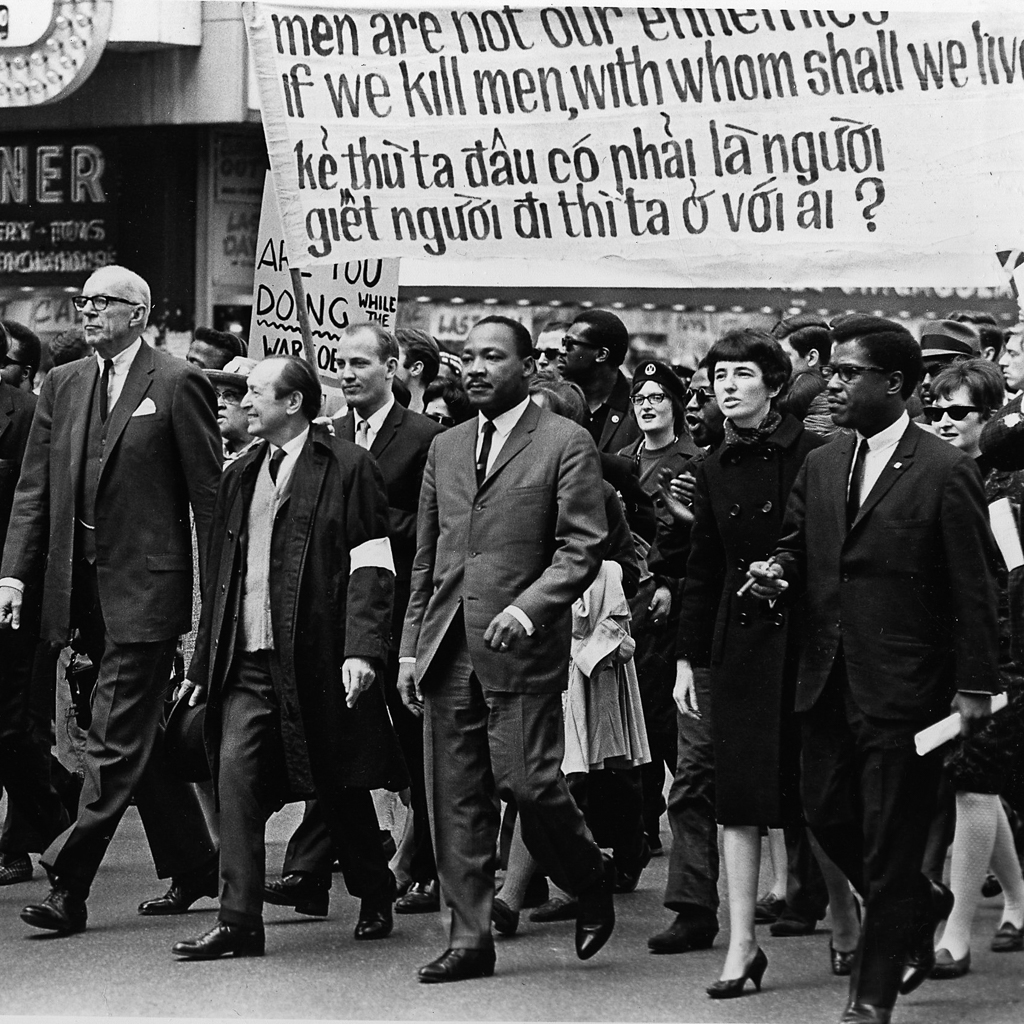
By Melissa Aase, CEO of University Settlement
Every January, a version of Dr. Martin Luther King, Jr. who bears little resemblance to the actual civil rights leader shows up on social media, just in time for his national holiday.
This version is still inspirational, but he’s been made hazier and blander by design, his fire drained away. Wielding this misappropriated avatar and a handful of quotes cut from their context, leaders who remain steadfastly committed to yesterday’s status quo distort Dr. King’s legacy to critique today’s activists.
But the real Dr. King was a committed advocate for fundamental changes in our society, and as we celebrate his contributions this weekend, we should remember him that way.
His final essay “A New Sense of Direction,” first delivered as a speech to the Southern Christian Leadership Conference just a few months before his assassination, remains a clarion call for nonviolent struggle to achieve a revolution in the American way of life:
We must fashion the new tactics which do not count on government goodwill but instead serve to compel unwilling authorities to yield to the mandates of justice…Our most fruitful course is to stand firm, move forward with aggressive nonviolence, accept disappointments and cling to hope. Our determined refusal not to be stopped will eventually thrust open the door to fulfillment.
I remember very vividly when, in 1956, I flew from New York to London in the propellor-type aircraft that required nine and a half-hours for a flight that we now make in about six hours by jet. Returning from London to the United States the stewardess announced that the flight time would be twelve and a half hours, although the distance was the same. Why an additional three hours? When the pilot entered the cabin I asked him why. He said something I will never forget. “You must understand something about the winds,” he said. “When we leave New York, a strong tail wind is in our favor, but when we return a strong head wind is against us.” And then he added: “Don’t worry, these four engines are capable of battling the winds.”
In any social revolution there are times when the tail winds of triumph and fulfillment favor us, and other times when strong head winds of disappointment and setbacks beat against us relentlessly. We must not permit adverse winds to overwhelm us as we journey across life’s Atlantic. We must be sustained by energies of courage or engines of courage, in spite of the winds – this refusal to be stopped, this courage to be, this determination to go on in spite of, is the hallmark of great movements.
In the days ahead we must not consider it unpatriotic to raise basic questions about our national character. We must ask why are there forty million poor people in a nation overflowing with such unbelievable affluence. We must ask why has our nation placed itself in the position of being God’s military agent on earth, intervening recklessly in Vietnam and in the Dominican Republic. Why have we substituted the arrogant undertaking of policing the whole world for the high task of putting our own house in order?
For its very survival’s sake, America must reexamine old presuppositions and release itself from things that for centuries have been held sacred. For the evils of racism, poverty and militarism to die, a new set of values must be born. Our economy must become more person-centered than property and profit-centered. Our government must depend more on its moral power than on its military power.
Beyond a more nuanced memory of Dr. King, we need to follow his call: to have courage in asking the hard questions and taking action, and in preserving hope in our movement despite the head winds we face.

